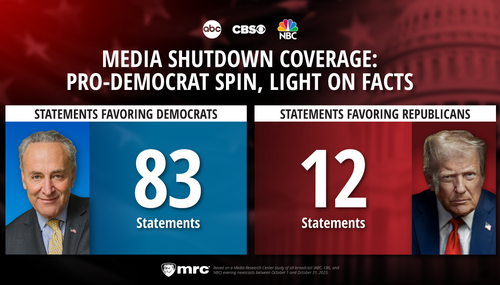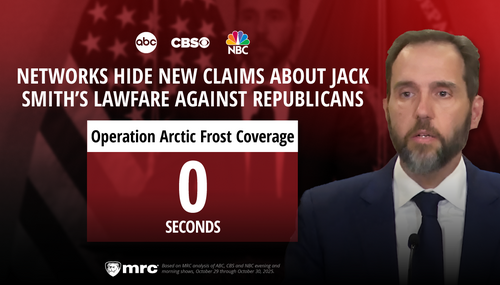An editorial in today’s Wall Street Journal tweaks the New York Times and other liberal critics of Rupert Murdoch’s takeover of the Journal. Noting how some of the fussier media outlets are competing with the Journal at a time when all newspapers are fighting the Internet tide, “readers can judge if the tears these papers and their writers claim to shed for the Journal's future are real, or of the crocodile variety.”
As for the ideology Murdoch’s News Corp. might bring to the Journal, the editors of the famously conservative editorial page mocked: “The nastiest attacks have come from our friends on the political left. They can't decide whose views they hate most — ours, or Mr. Murdoch's. We're especially amused by those who say Mr. Murdoch might tug us to the political left. Don't count on it.”
The editors’ common-sense bottom line: “Editorial independence enhances the prospects for business success. The more credible a publication is, especially one that specializes in financial and economic reporting, the more readers and advertisers it is likely to have.... No sane businessman pays a premium of 67% over the market price for an asset he intends to ruin.”
Here’s a longer excerpt from today’s editorial, which you can read in full here.
As for the ideology Murdoch’s News Corp. might bring to the Journal, the editors of the famously conservative editorial page mocked: “The nastiest attacks have come from our friends on the political left. They can't decide whose views they hate most — ours, or Mr. Murdoch's. We're especially amused by those who say Mr. Murdoch might tug us to the political left. Don't count on it.”
The editors’ common-sense bottom line: “Editorial independence enhances the prospects for business success. The more credible a publication is, especially one that specializes in financial and economic reporting, the more readers and advertisers it is likely to have.... No sane businessman pays a premium of 67% over the market price for an asset he intends to ruin.”
Here’s a longer excerpt from today’s editorial, which you can read in full here.
Make no mistake: Business success is vital to editorial independence, precisely because it provides the resources to report and comment in ways that might offend advertisers or governments.
We also believe the reverse is true: Editorial independence enhances the prospects for business success. The more credible a publication is, especially one that specializes in financial and economic reporting, the more readers and advertisers it is likely to have. We like to think our readers buy the Journal because of the credibility built over a century, and we believe this is the heart of the "value proposition" that Mr. Murdoch is willing to pay $5 billion to purchase. No sane businessman pays a premium of 67% over the market price for an asset he intends to ruin.
There are nonetheless critics, especially in the journalism world, who claim this is precisely what Mr. Murdoch will proceed to do. And they have certainly had a merry time bashing him and the Journal these past few months. Some of these voices, however, are commercial or ideological competitors who have their own interest in undermining the Journal's credibility.
Both the New York Times and the Financial Times have been especially aggressive in assailing the potential News Corp. purchase of the Journal. These also happen to be the two publications that Mr. Murdoch has explicitly said he might invest more to compete against. Readers can judge if the tears these papers and their writers claim to shed for the Journal's future are real, or of the crocodile variety.
The nastiest attacks have come from our friends on the political left. They can't decide whose views they hate most--ours, or Mr. Murdoch's. We're especially amused by those who say Mr. Murdoch might tug us to the political left. Don't count on it. More than one liberal commentator has actually rejoiced at the takeover bid, on the perverse grounds that this will ruin the Journal's news coverage, which in turn will reduce the audience for the editorial page. Don't count on that either.
Such an expectation overlooks that the principle of "free people and free markets" promoted in these columns has an appeal far beyond this newspaper. We fill a market niche for such commentary that is too little met by other newspapers and media outlets. But we have every confidence that if we vanished, or let our standards fall, the marketplace would find an alternative. What ultimately matters are the ideas, and their basic truth.




